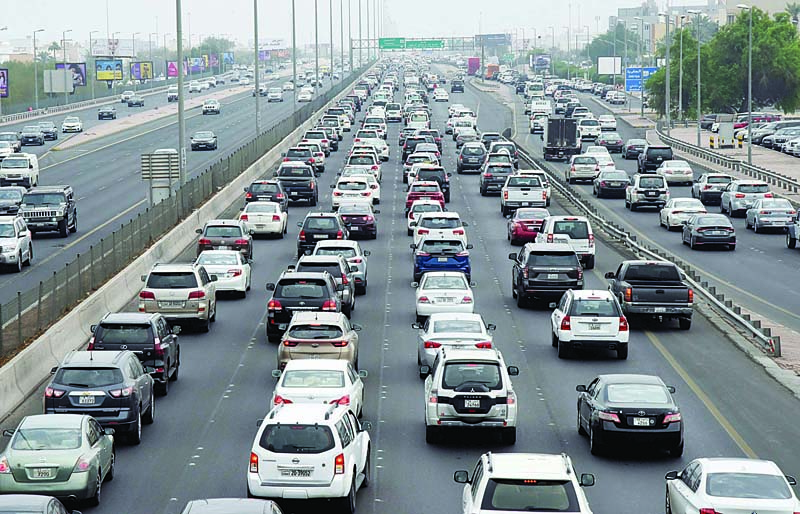By B Izzak
KUWAIT: The traffic department warned expats on Sunday that tickets for speeding and using parking spots allocated for the handicapped must be paid in person at traffic department offices and cannot be paid online or by any other method. The announcement came as the traffic department began on Saturday applying a new rule requiring expats leaving the country to settle all traffic fines either online or at traffic department offices at the airport. The department said tickets for speeding and parking in handicapped places cannot be settled at the airport or online and must be paid at traffic offices "well before the departure date”.
The traffic department had warned that expats who fail to pay their traffic tickets will not be allowed to leave the country at the airport, border crossings or at ports. Local media reported on Sunday that airport authorities have already turned back at least 10 expats who failed to pay their traffic tickets. MP Khaled Al-Tammar welcomed the traffic department decision, praising the interior minister for issuing such a regulation that aims at collecting government funds. Another decision is expected to prevent expatriates from leaving the country without addressing their financial obligations, thus avoiding any potential financial losses to the state.
The decision will safeguard the financial interests of creditors. According to sources, upcoming decisions will pertain to expatriates who have outstanding loans with banks. They will be prohibited from traveling unless they can provide a letter from their bank demonstrating that their debt is secured, either through a guarantor or mortgage. Additionally, an automated system will be established to link the airport with banks, allowing authorities to verify whether the bank consents to an expatriate traveling before collecting its owed funds.
Furthermore, these decisions will require expatriates to produce a letter confirming that they have no outstanding financial liabilities in their workplace before they are permitted to travel. The implementation of these measures is currently under discussion and coordination between the ministry of interior and various government agencies. The Kuwait Chamber of Commerce and Industry, representing the private sector, is also involved. These measures aim to prevent complaints from both government and private agencies regarding outstanding funds when expatriates leave the country without settling their financial obligations.
It is worth noting that many government agencies have faced issues with expatriates leaving for good before paying their debts. Additionally, banks have reached agreements with government and private agencies to withhold end-of-service dues of expatriates until they confirm the status of any outstanding loans with the banks. Meanwhile, the Public Authority of Manpower (PAM) announced on Sunday it is seeking to establish a shelter for male expatriates who have legal issues with employers.
The PAM shelter currently houses female expatriates in response to personal requests or requests by embassies or relevant authorities, said Dr Fahad Al-Murad, acting deputy director general for expatriate workers’ protection, who affirmed on the occasion of World Humanitarian Day that these women enjoy legal, social and health care. The center, he added, is seeking to establish an identical section to receive male expatriates facing similar conditions and issues. The center, since its establishment in 2014, has hosted more than 13,000 female workers.
This year, it has received 960 women laborers, in addition to eight children accompanied by their mothers. Most of them have returned home and only 35 remain at the center. Meanwhile, Khaled Al-Ajmi, Chairman of Kuwaiti Human Rights Society, said in remarks to KUNA the society has inked an accord with the center to educate expatriates about their rights and duties according to Kuwaiti laws. The society, he added, this year distributed leaflets and booklets in seven languages as part of efforts to help them.



